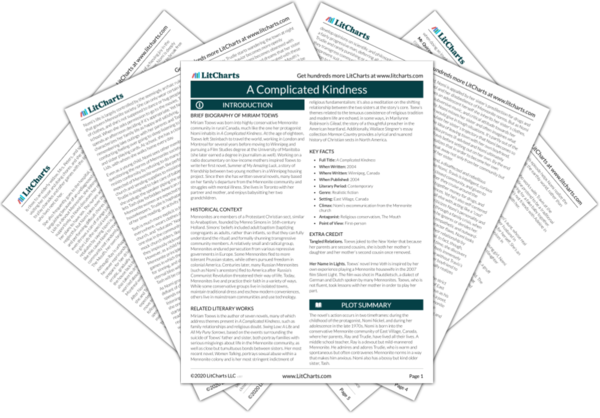By referencing Ray’s darkly funny comment about the morgue, Nomi presents her father as earnest and well-intentioned, yet emotionally obtuse. But at the novel’s end, it’s he who gives Nomi the help and guidance she needs to leave home. It’s possible that Nomi is underestimating her father’s emotional strength as an excuse to stay in East Village and care for him.
